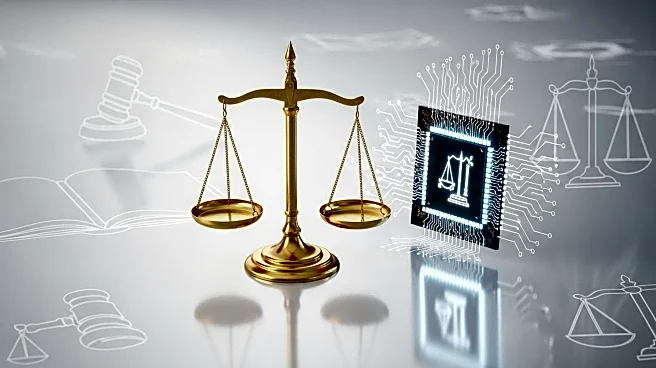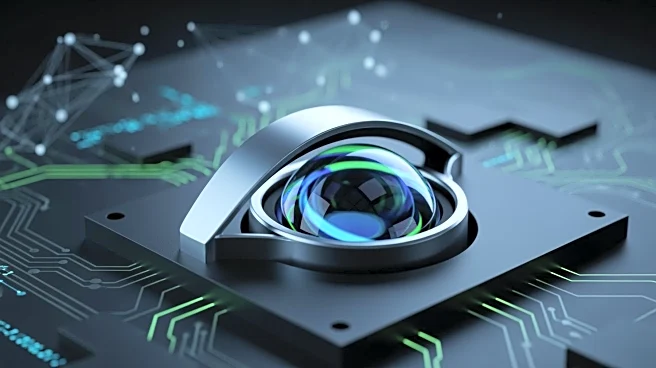What's Happening?
Justice Amy Coney Barrett revealed that lawyers have been using artificial intelligence to predict questions they might face during Supreme Court arguments. Speaking at the Ronald Reagan Presidential Library, Barrett noted that AI has successfully anticipated questions that were later asked by justices during court proceedings. Despite this technological advancement, Barrett expressed skepticism about the court adopting AI in the near future due to confidentiality concerns. Her comments were part of a promotional tour for her new book, 'Listening to the Law: Reflections on the Court and Constitution.'
Why It's Important?
The use of AI in legal proceedings represents a significant shift in how lawyers prepare for cases, potentially enhancing their ability to anticipate and respond to judicial inquiries. This development could lead to more efficient court proceedings and influence the legal profession's approach to case preparation. However, the integration of AI in the judiciary raises questions about privacy and the potential impact on the traditional legal process. As AI technology continues to evolve, its role in the legal system may expand, affecting how justice is administered and perceived.
What's Next?
While AI's use in predicting court questions is currently limited to preparation by lawyers, its potential adoption by the judiciary could be explored further. Discussions around the ethical and practical implications of AI in legal settings are likely to continue, with stakeholders considering how to balance technological benefits with confidentiality and privacy concerns. The legal community may also examine how AI can be integrated into other aspects of legal practice, such as case analysis and decision-making.









